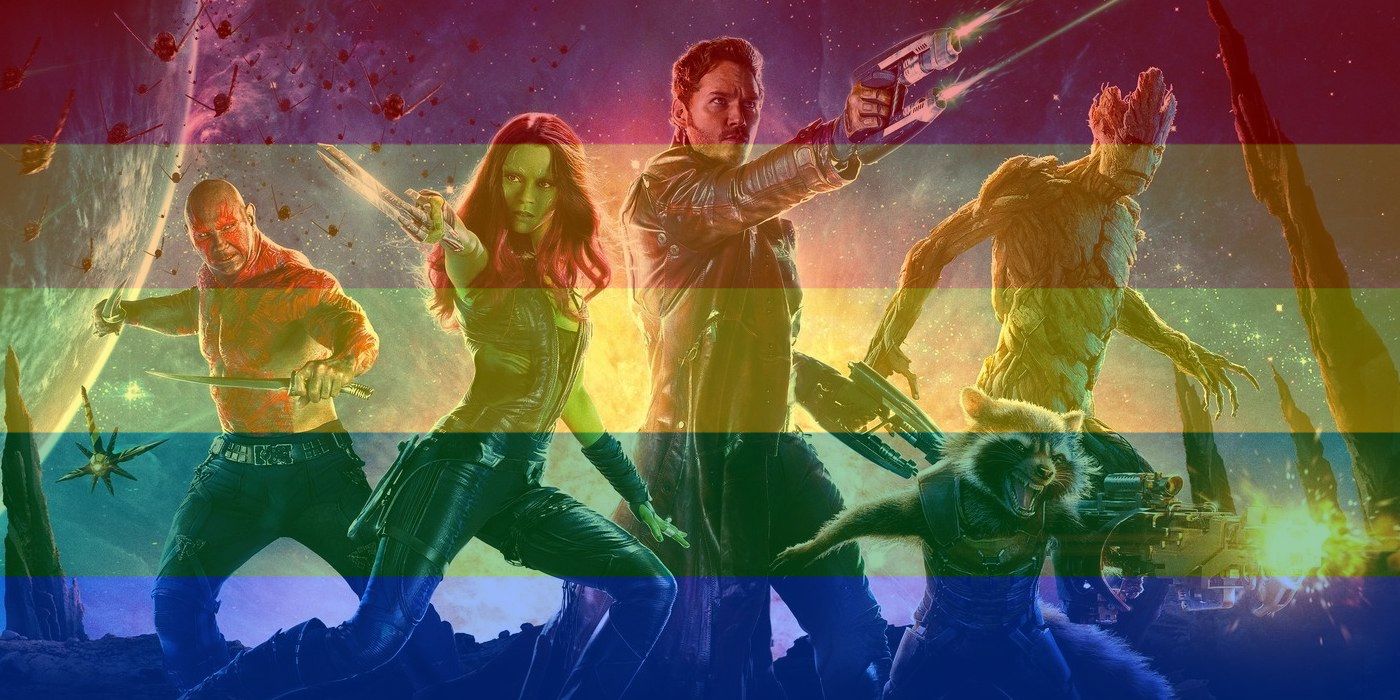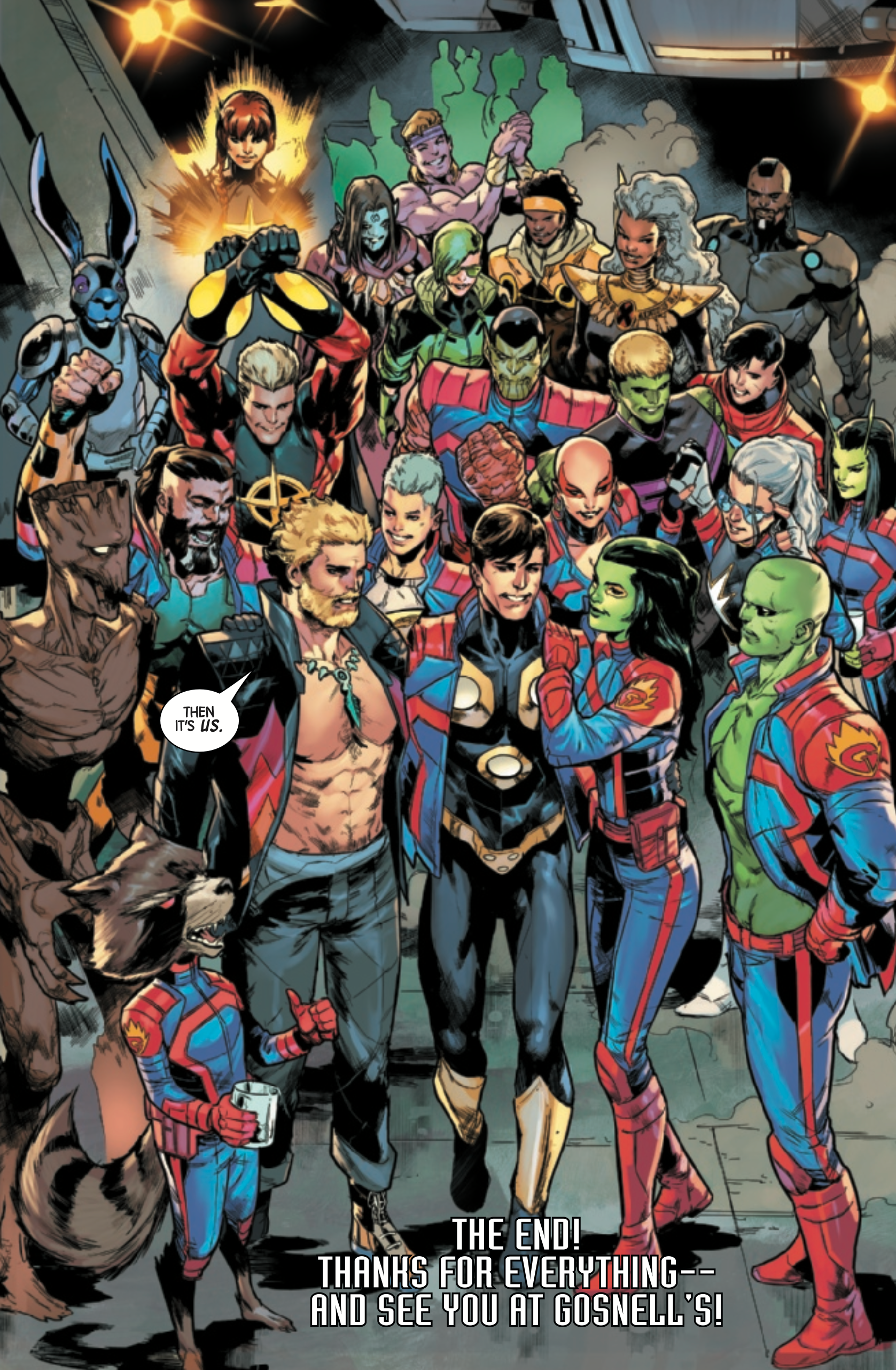The recent cancelation of Marvel’s latest Guardians of the Galaxy series has resulted in a massive void for the company’s LGBTQIA+ representation. Widely popular with fans, some have speculated that the title’s emphasis on exploring the diversity of sexualities on the team was a major reason for Marvel’s decision to end the series.
Throughout Al Ewing’s 18-issue run on Guardians of the Galaxy, there was a heavy focus on LGBTQIA+ representation. The team’s roster boasted a range of sexual orientations, featuring prominent lesbian, bisexual, and gay couples in Moondragon and Phyla-Vell, Hercules and Marvel Boy, and Hulkling and Wiccan. Al Ewing, Juann Cabal, Federico Blee, and Cory Petit’s Guardians of the Galaxy #9, in particular, stands out in this regard, with Star-Lord coming out as bisexual. These diverse identities made the series a wellspring of representation for LGBTQIA+ readers, but some fans believe that they also led to, or were a contributing factor to, the story’s abrupt conclusion.
Unfortunately, Marvel’s history with representing marginalized groups warrants these concerns. Despite having taken tremendous steps to increase representation over the past several years and releasing LGBTQIA+ specific comics like Marvel’s Voices: Pride, there have still been plenty of roadblocks to work through within the company. In early September, Kevin Biegel, the showrunner for Marvel’s scrapped New Warriors television series, tweeted that the show was canceled by an executive for being “too gay.” Prior to this, former Disney CEO Bob Iger revealed that he ran into similarly narrow-minded complications with Marvel CEO Ike Perlmutter while trying to greenlight movies like Black Panther and Captain Marvel.
Clearly, Marvel’s creators are still fighting an uphill battle to include LGBTQIA+ content in their stories, further evidenced by the fact that the MCU’s Eternals features one of the studio’s first openly gay superheroes, Phastos. Still, the finale to Ewing's Guardians of the Galaxy series may have just been a natural way to end his time on the project. Taking over as a writer for titles like Venom and Defenders, Ewing hasn’t made any claims about Marvel’s reasoning for the cancelation. Hopefully, this means the decision was simply a way for Ewing to move on to new stories, as opposed to being backlash for the inclusivity of his works.
Whatever the case may be, canceling this series will unavoidably wipe out a huge contingent of Marvel’s LGBTQIA+ characters from the company’s release slate. Only the current line of X-Men comics rival the Guardians in terms of LGBTQIA+ representation, and even then, these characters are spread out between a multitude of different titles. As a unified front, the Guardians of the Galaxy were consistently giving fans content that was action-packed, but also took the time to explore their diverse sexual orientations along the way.
The care with which Ewing was able to navigate these identities made for some compelling character development and it will be sorely missed as he moves on with new projects. With James Gunn’s Guardians of the Galaxy Vol. 3 on the way, as well as a new Guardians video game coming out later this month, it’s likely that the spacefaring team won’t be gone for long. Hopefully, the next Marvel writer to take the helm on a Guardians of the Galaxy series will take a bit of inspiration from Ewing, though, and continue to explore the different sexual orientations of the team’s members in a thoughtful and embracing way.


